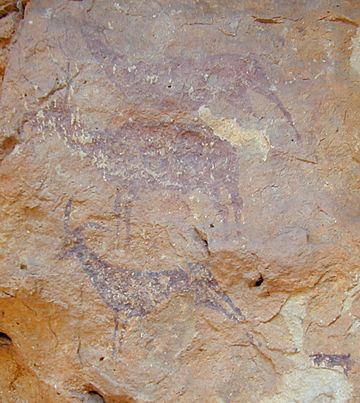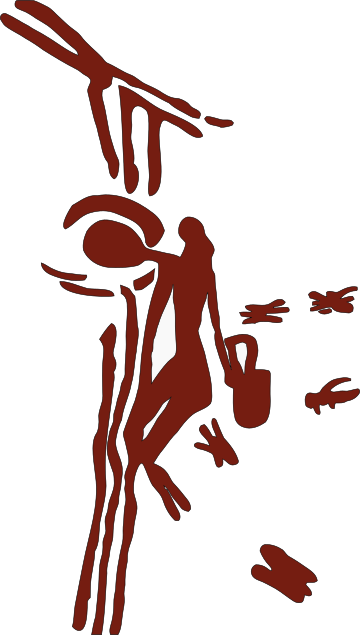Cuevas de la Araña facts for kids
| UNESCO World Heritage Site | |
|---|---|
 |
|
| Location | Bicorp, Valencian Community, Spain |
| Part of | Rock Art of the Mediterranean Basin on the Iberian Peninsula |
| Includes |
|
| Criteria | Cultural: (iii) |
The Coves de l'Aranya are a famous group of caves in eastern Spain. Their name means "Spider Caves" in English. These caves are located near the town of Bicorp in the Valencian Community. Long ago, prehistoric people lived here and left amazing rock art on the cave walls.
The Coves de l'Aranya are especially known for two things. One is a painting showing a goat hunt using bow and arrow. The other is a unique scene of a person gathering honey from a beehive. This honey-gathering painting is the oldest known picture of bees. It also shows the earliest proof that humans, or Homo sapiens, ate honey.
Discovering Ancient Art
The art in these caves is very old. Experts believe the famous honey-gathering painting is about 8,000 years old. This makes it a truly ancient piece of human history.
How the Caves Were Found
A local teacher named Jaume Garí i Poch discovered these caves in the early 1900s. His discovery helped us learn a lot about how people lived thousands of years ago.
A World Heritage Site
The Coves de l'Aranya are part of a larger group of sites. These sites are called the Rock art of the Iberian Mediterranean Basin. This entire collection of rock art is so important that UNESCO has named it a World Heritage Site. This means it is a special place that needs to be protected for everyone to enjoy and learn from.
See also
 In Spanish: Cuevas de la Araña para niños
In Spanish: Cuevas de la Araña para niños
 | William M. Jackson |
 | Juan E. Gilbert |
 | Neil deGrasse Tyson |


